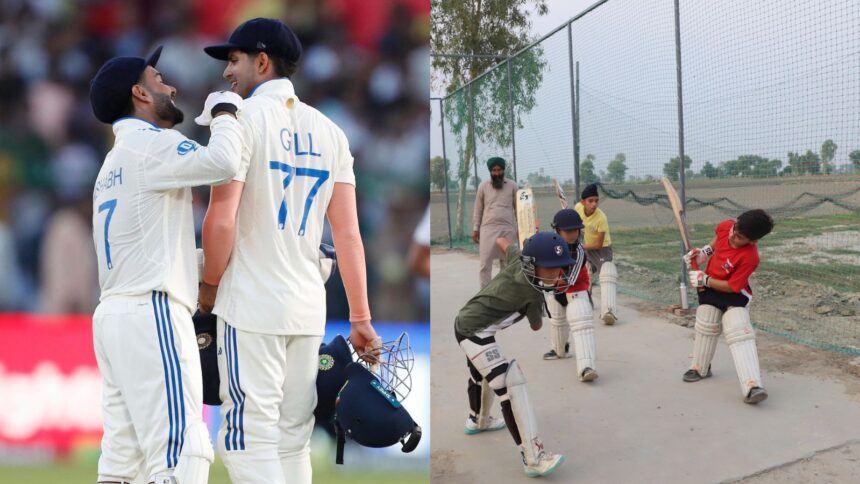Shubman Gill has been picked to lead India’s Test team into a new era, steering through a transition phase following the retirements of Virat Kohli and Rohit Sharma, starting with the five-match series in England from June 20.
At 25 years, Test captain since , who was 23 when he helmed the team — and the fifth youngest ever, after Mansoor Ali Khan Patuadi (21), Kapil Dev (24), and Ravi Shastri (also 25, but 55 days younger).
While (31) has played the role of stand-in captain in the past, the selectors did not hand him the reins for the long term, citing “workload management”. Chairman of selectors Ajit Agarkar confirmed on Saturday that Bumrah would not play all five Test matches in England.
With hanging up his boots after the third Test of the Border-Gavaskar series in Australia last year, fast bowler ignored because of fitness concerns, and an inexperienced middle-order with two potential debutants — Abhimanyu Easwaran and Sai Sudharsan — Gill will have to shepherd the young team. (27) has been named as his deputy for the series.
Gill will have little time to settle in, as he will be tasked with making crucial decisions rightaway, including picking the opening partner for Yashasvi Jaiswal. Sudharsan and Easwaran, who would be expecting to earn their first India cap, will be in contention for the role along with K L Rahul.
Similarly, he will have to manage the bowling unit in Bumrah’s absence. is expected to lead the attack in the matches where Bumrah does not play, with Akash Deep, Nitish Reddy, Prasidh Krishna and being the other options.
Agarkar acknowledged the enormity of the challenge that awaits the young captain. “It is going to be as tough as it gets,” he said. “Maybe, he’ll have to learn on the job.”
Agarkar said the elevation of Gill — who made his Test debut five years ago and has scored 1,893 runs in 31 matches — as the captain of the 18-man squad was taken after seeing his “progress in the last year or two”. He also made it clear that the selectors didn’t want an interim captain, ruling out the other senior in the team, K L Rahul.
“You don’t pick captains for one or two tours. You want to invest in something that will help us going forward. Obviously, you discuss every option that’s there. Over the last year or so, we have looked at Shubman at various times. You take a lot of feedback from the dressing room as well,” Agarkar said in after announcing the team.
“He’s very young. We’ve seen the improvement but we take feedback from a lot of people. Like always, it is a high-pressure job. But we’re hopeful we’ve picked the right guy,” Agarkar said.
While Gill’s promotion was expected in the aftermath of the void created by the absence of Kohli and , it also marked a drastic change in fortunes. Gill was in only three of the five matches in India’s last Test series in Australia, and didn’t play a knock of significance. He was on drinks duty for the third Test in Melbourne and got his place back only after Rohit sat out for the final Test in Sydney.
With only the experience of captaining India in five T20 matches against Zimbabwe last year, and leading in the , he will have to steer the team through the next World Test Championship Cycle — a title that India has never won.
Gill hails from a farming family with roots in the border district of Fazilka in Punjab. Soon after the team was announced, the streets of Chak Kherewala, the cricketer’s village which is 16 kilometres from the border, were buzzing with pride. His family, however, confined themselves to their home, seeking privacy.
During the recent India-Pakistan conflict, the border village faced frequent blackouts, and the district headquarters witnessed drone activities. Author Deepti Babuta, mother of Olympian shooter Arjun Babuta, said it is “the struggles of border villages and their resilience which make players like Gill and Babuta”.
Eighteen years ago, Gill moved to Mohali with his parents and sister for better access to cricket facilities. Back then, the family was mocked. “People used to taunt them, saying who goes so far from home or spends so much time training for cricket,” recalled Gill’s paternal aunt Gurpreet Sandhu. “But then, somebody had to make the sacrifice. And both, my father and brother, did that. To see Shubman lead the Indian team will be the proudest moment for my father and brother.”
Gill, whose stars have been on the rise over the last few years, has used his fame and fortune to give back to the village. “He gave Rs 3.5 lakh last year for nets and other facilities. This is a big day for every child who trains here as it will inspire them,” said Gurpreet Singh, who runs the Jaimal Wala Academy on land earmarked by the village panchayat for cricket training.
There has been a constant uptick in the number of trainees, with “more and more parents sending their children”, according to Surinder Chhindi, secretary of the Fazilka Cricket Association. A new stadium, too, is being constructed near the village, he said.
Nitin mainly covers Olympics sports disciplines with his main interests in shooting, boxing, wrestling, athletics and much more. The last 17 years with The Indian Express has seen him unearthing stories across India from as far as Andaman and Nicobar to the North East. Nitin also covers cricket apart from women’s cricket with a keen interest. Nitin has covered events like the 2010 Commonwealth Games, the 2011 ODI World Cup, 2016 T20 World Cup and the 2017 AIBA World Youth Boxing Championships.
An alumnus of School of Communication Studies, Panjab University, from where he completed his Masters in Mass Communications degree, Nitin has been an avid quizzer too. A Guru Nanak Dev University Colour holder, Nitin’s interest in quizzing began in the town of Talwara Township, a small town near the Punjab-Himachal Pradesh border. When not reporting, Nitin’s interests lie in discovering new treks in the mountains or spending time near the river Beas at his hometown.








